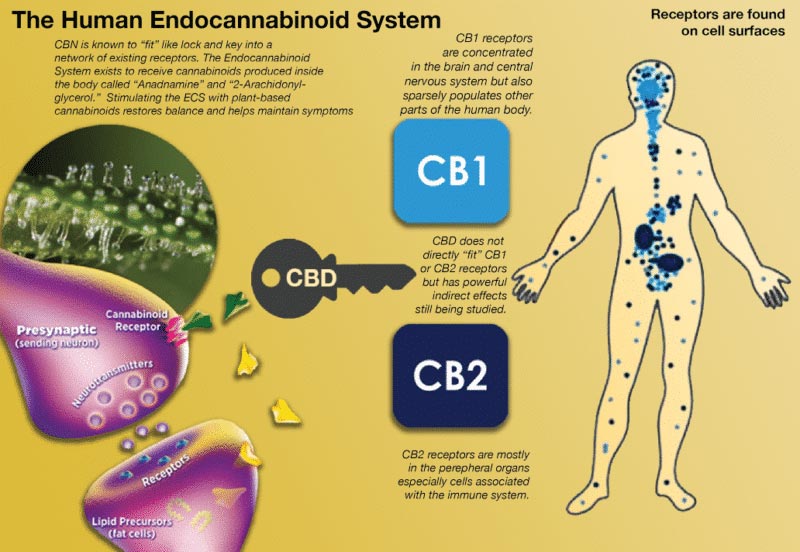No products in the cart.
How does CBD work? Leave a comment
CBD work by interacting with our body’s endocannabinoid system, a regulatory system made up of naturally occurring cannabis-like molecules. These endocannabinoids, as they’re called, work like neurotransmitters, shuttling messages through the body to help maintain homeostasis. Cannabinoids like CBD and THC interact with the endocannabinoid system at two known receptors: CB1 and CB2.
How does CBD work?
All cannabinoids, including CBD, produce effects in the body by attaching to certain receptors. The human body produces certain cannabinoids on its own. It also has two receptors for cannabinoids, called the CB1 receptors and CB2 receptors.
CB1 receptors are mainly present in the brain — where they’re involved with cognition, memory, motor skills and pain — but also in the peripheral nervous system, liver, thyroid, uterus and more. THC attaches itself to these receptors, inhibiting the release of neurotransmitters and possibly increasing the release of others, altering normal functioning.
CB1 receptors are present throughout the body, but many are in the brain. The CB1 receptors in the brain deal with coordination and movement, pain, emotions, and mood, thinking, appetite, and memories, and other functions. THC attaches to these receptors.
CB2 receptors are more common in the immune system. They affect inflammation and pain. Researchers once believed that CBD attached to these CB2 receptors, but it now appears that CBD does not attach directly to either receptor.
Instead, it seems to direct the body to use more of its own cannabinoids.


